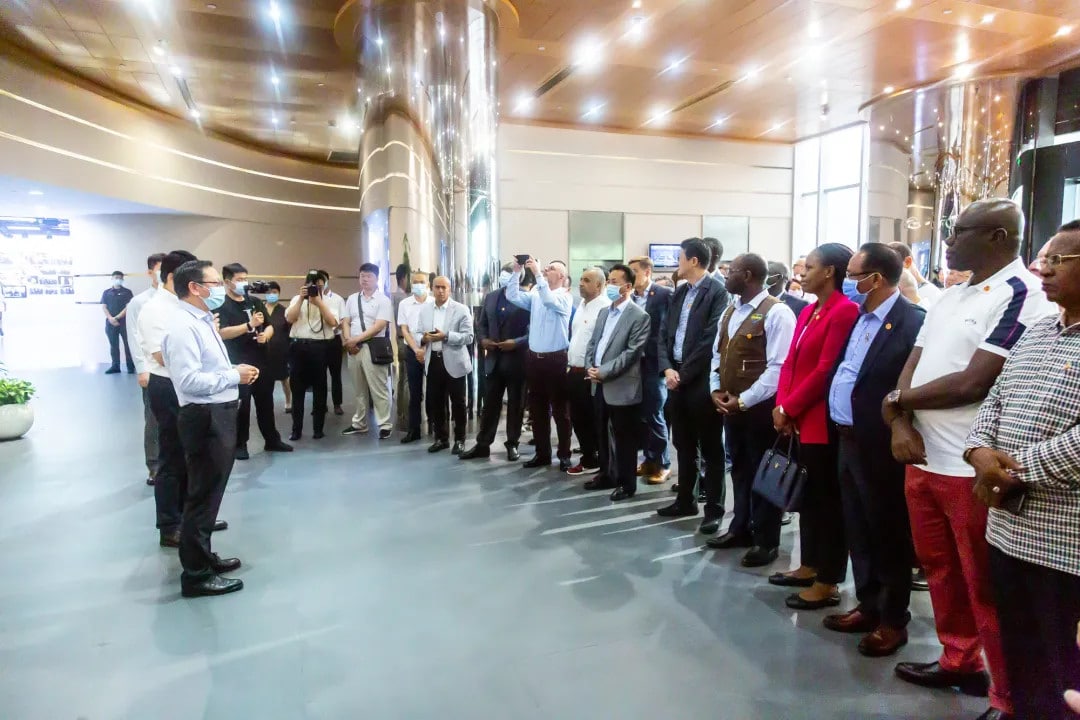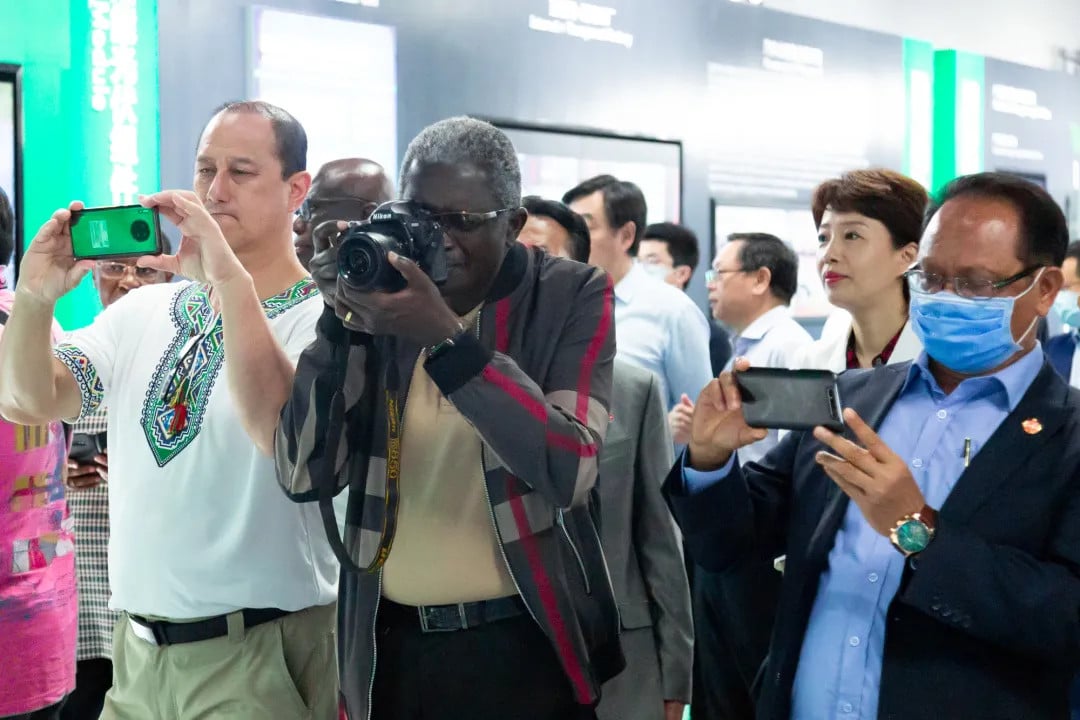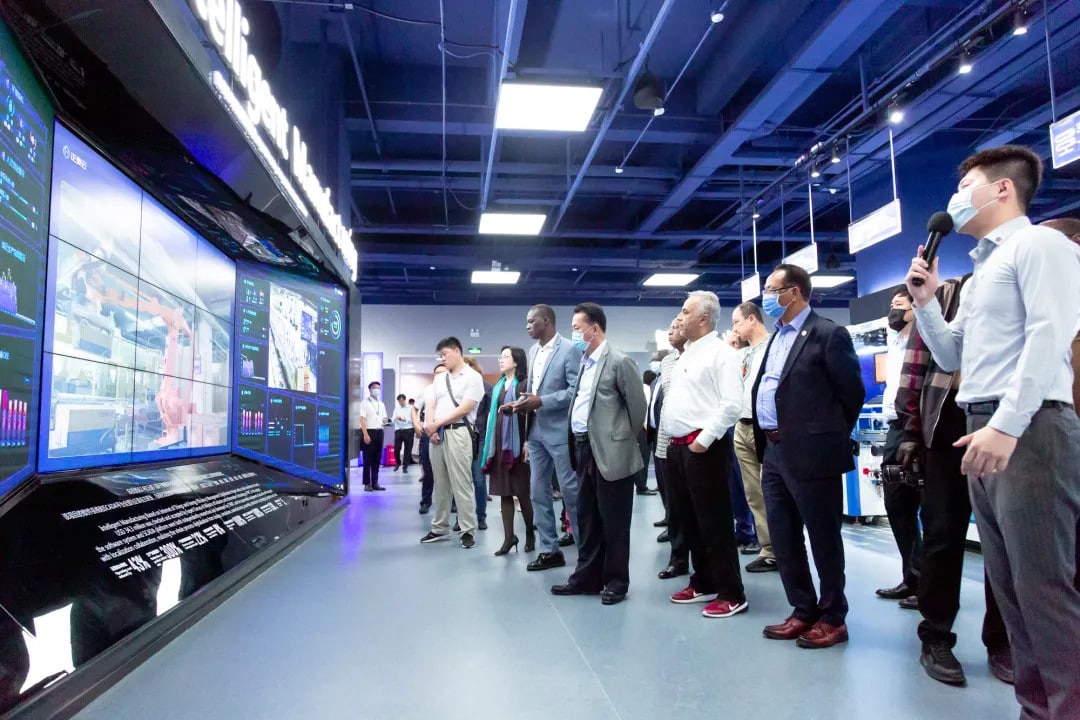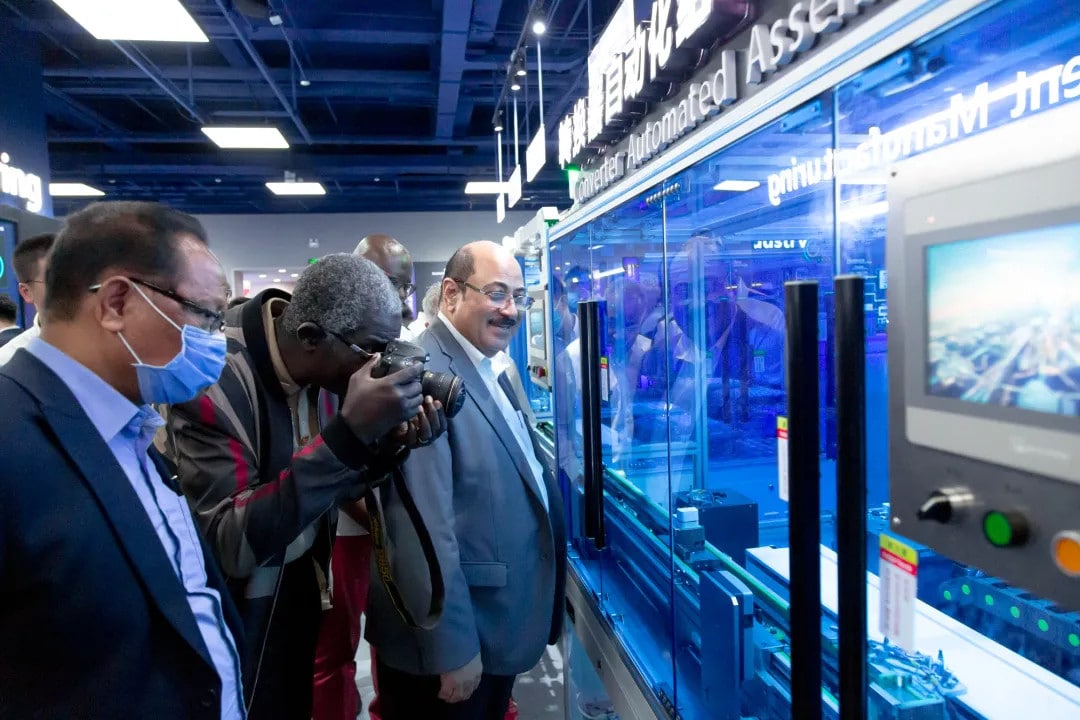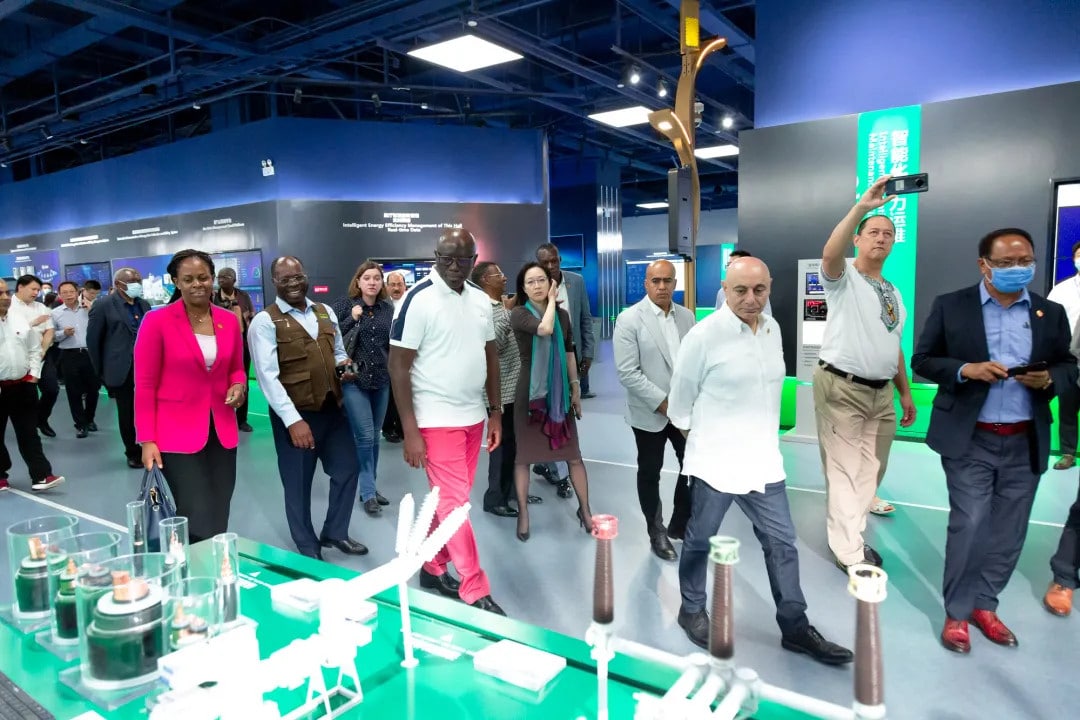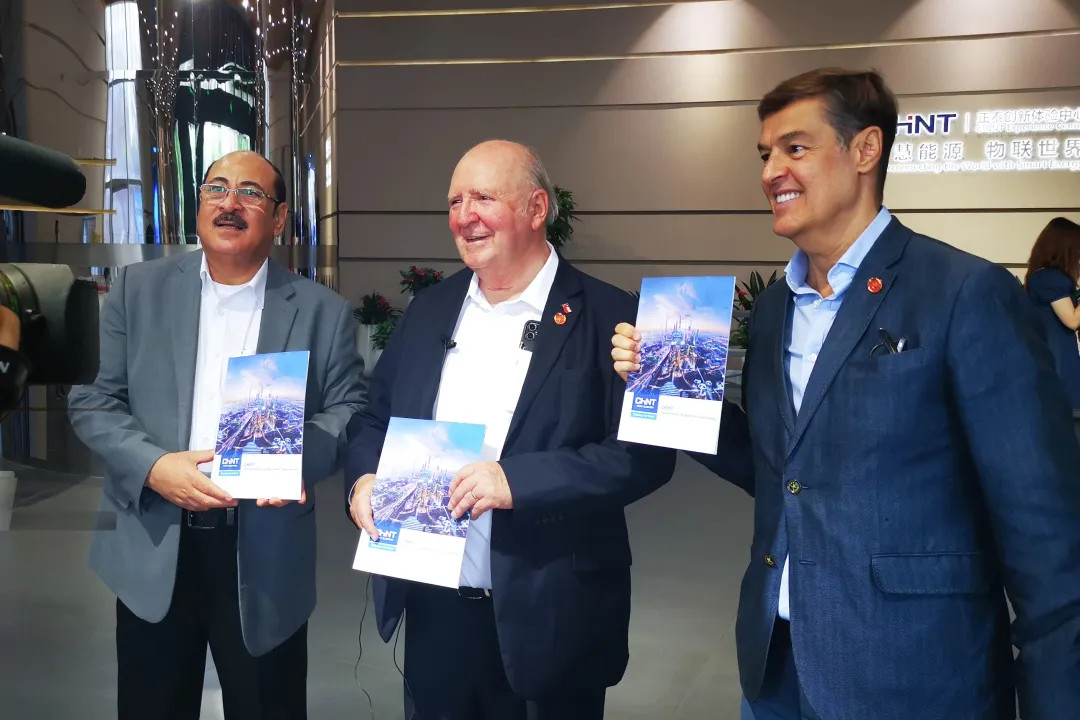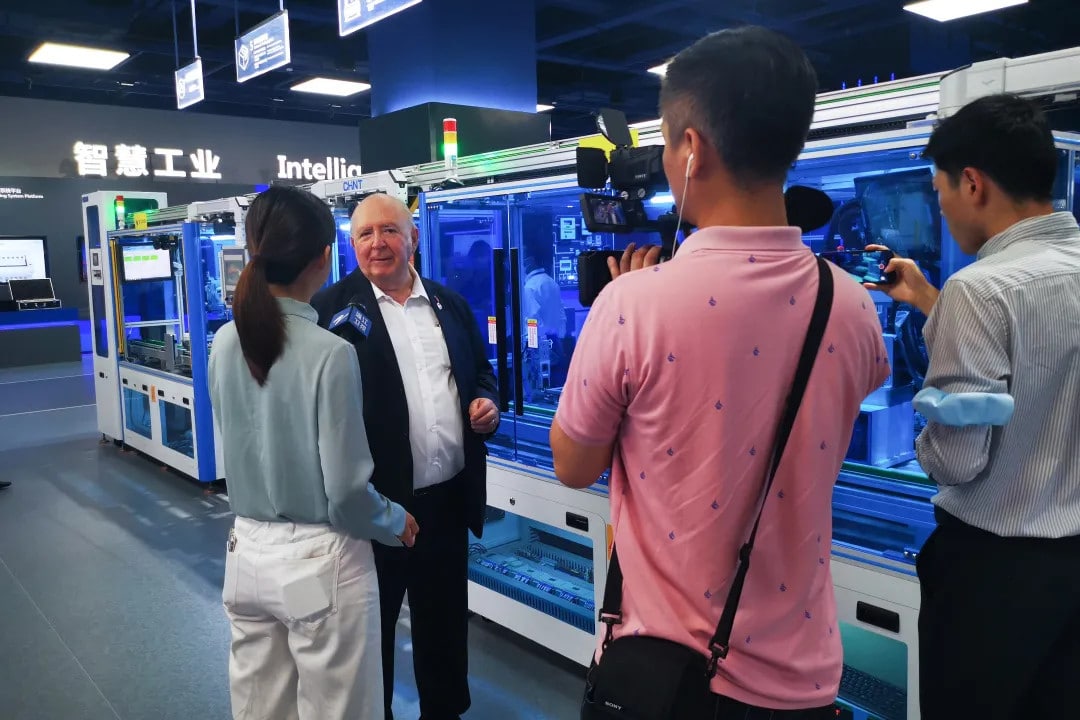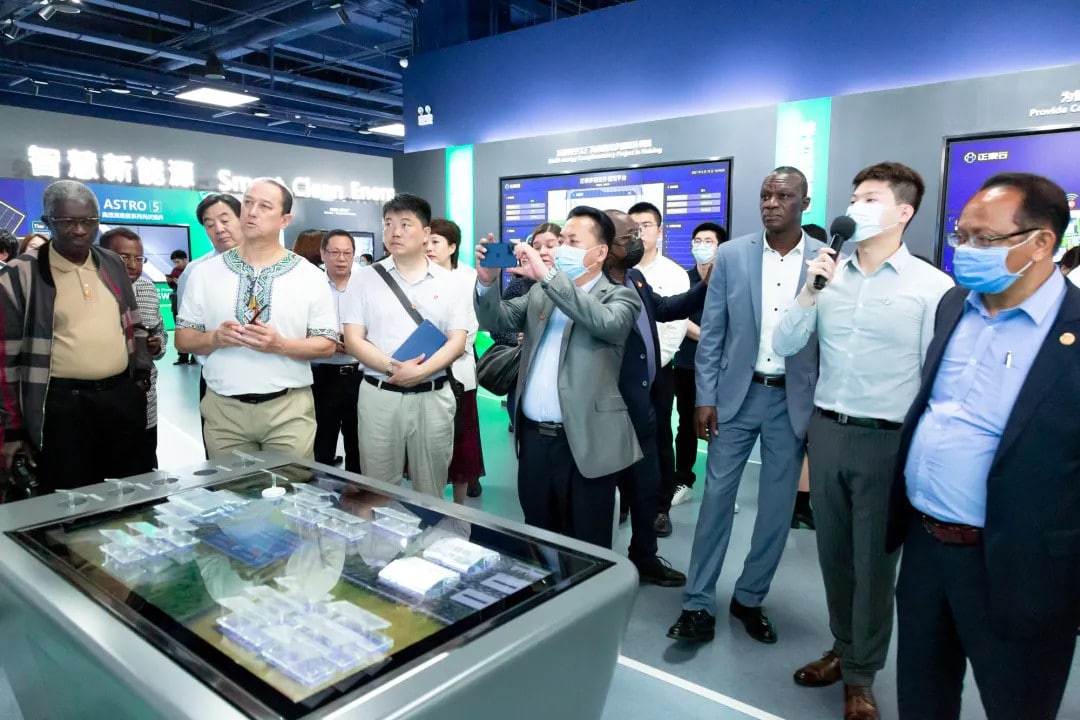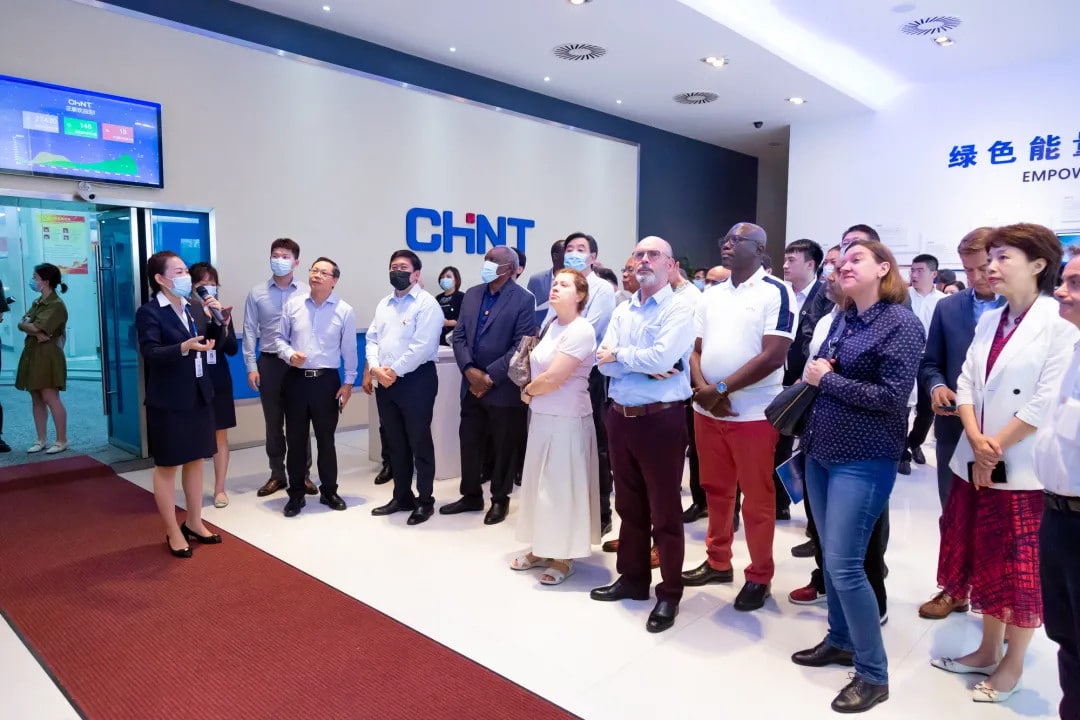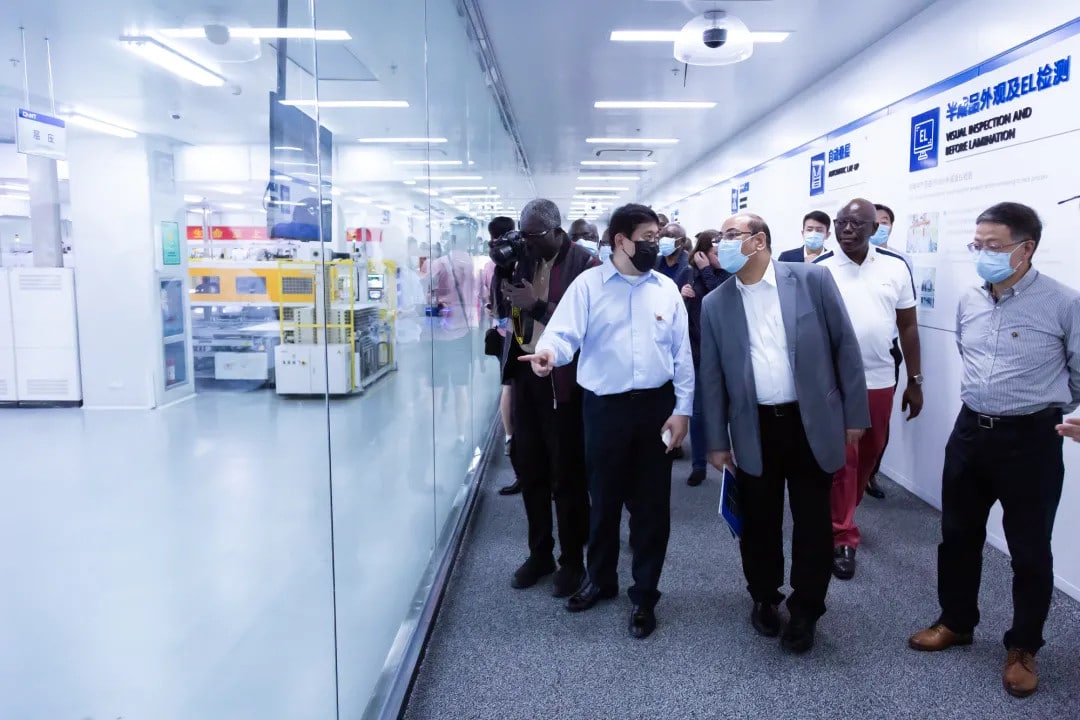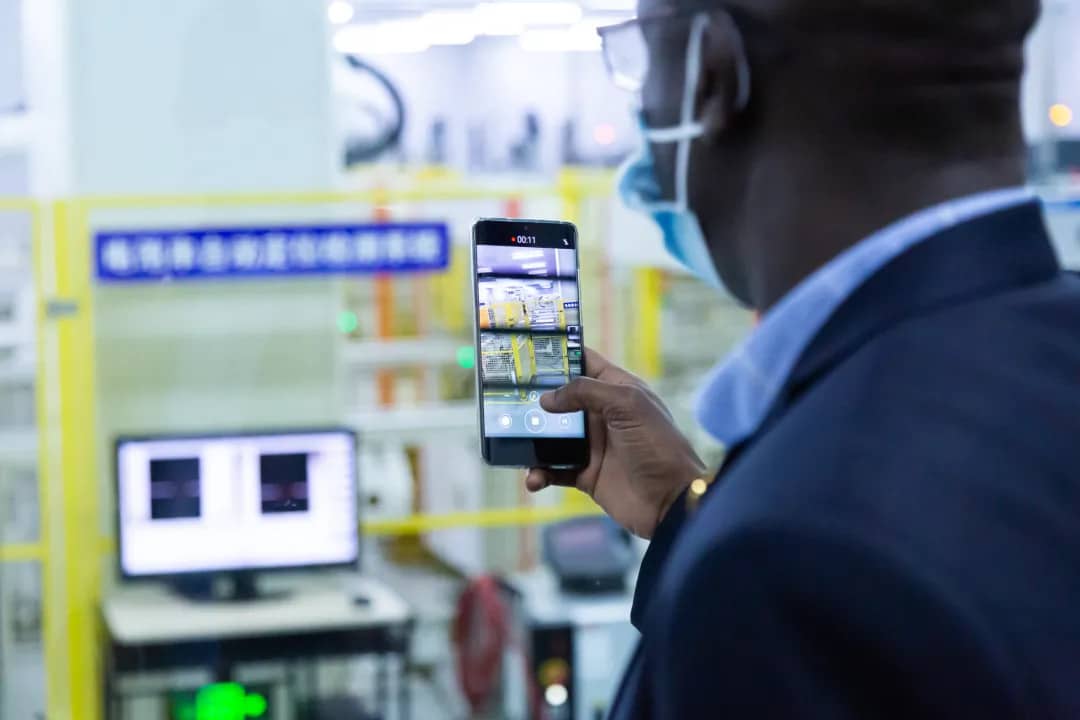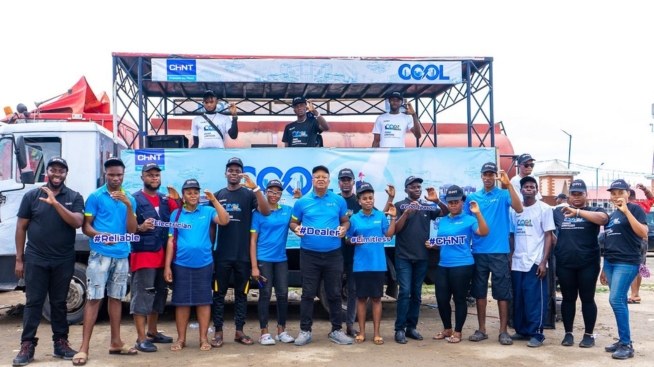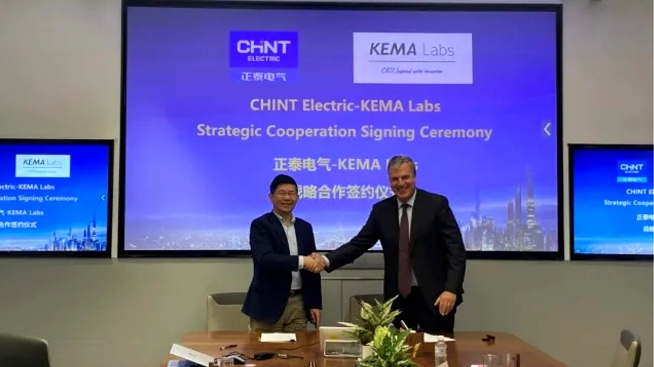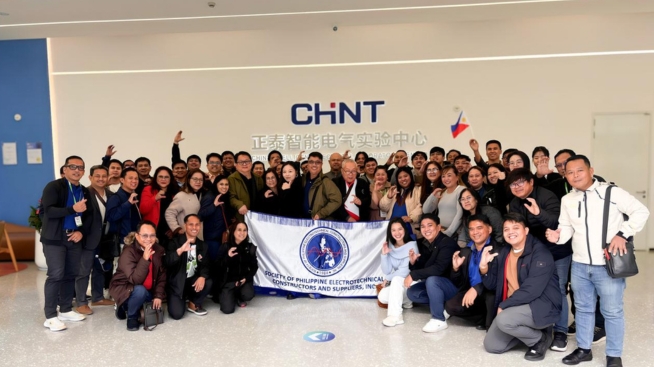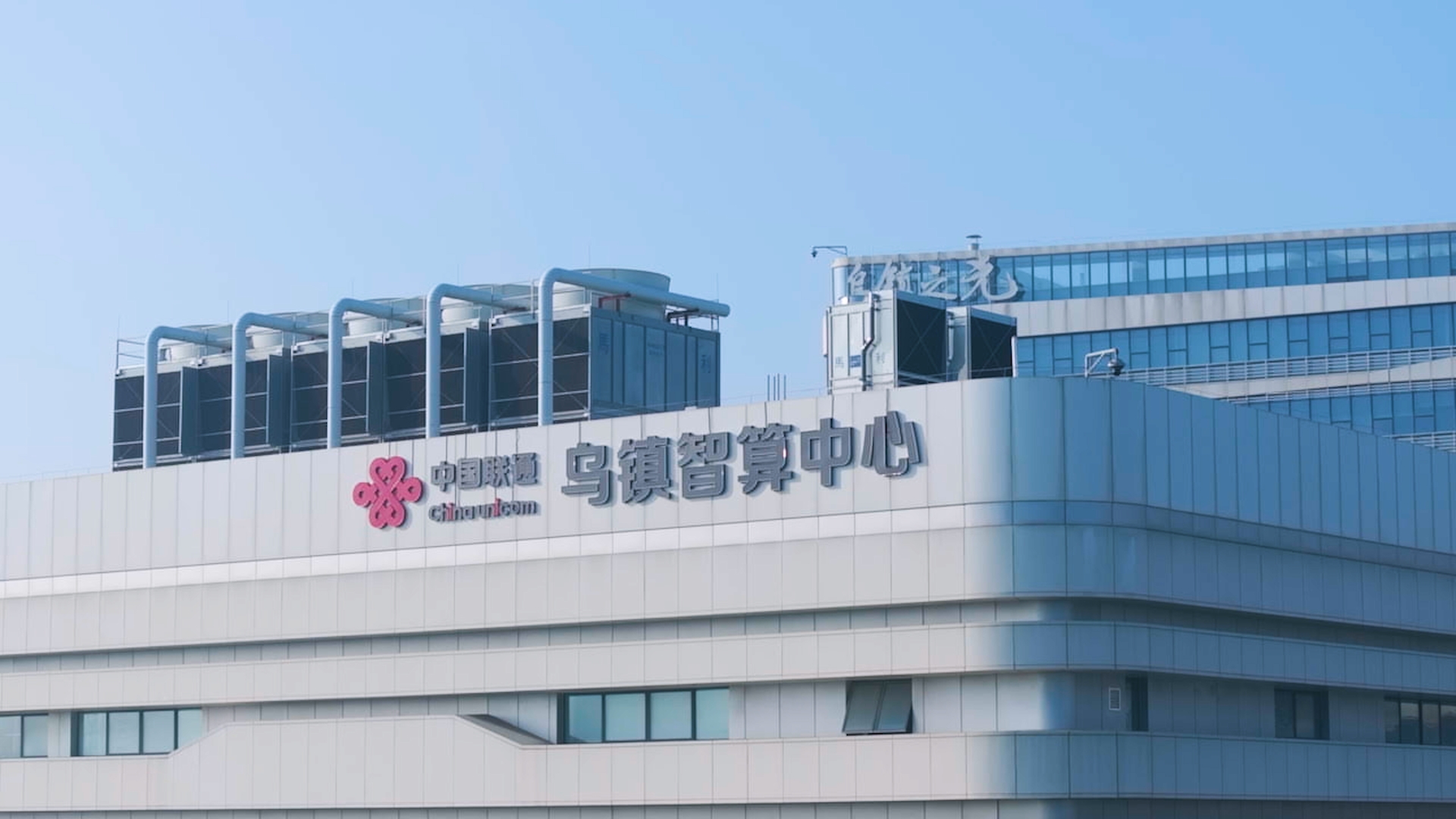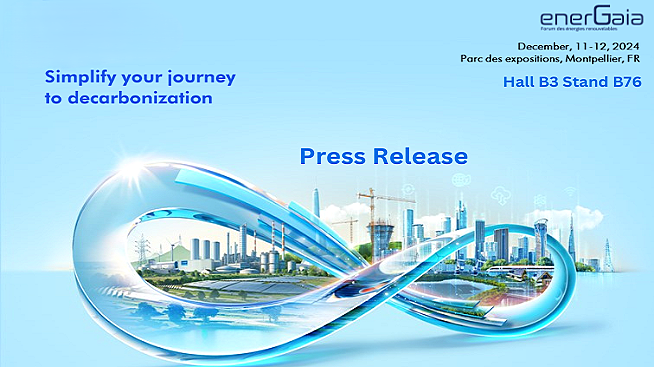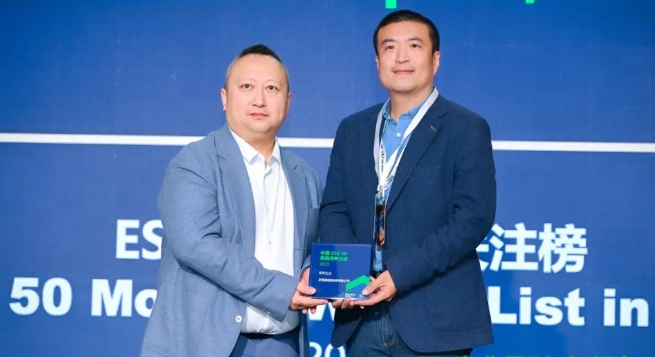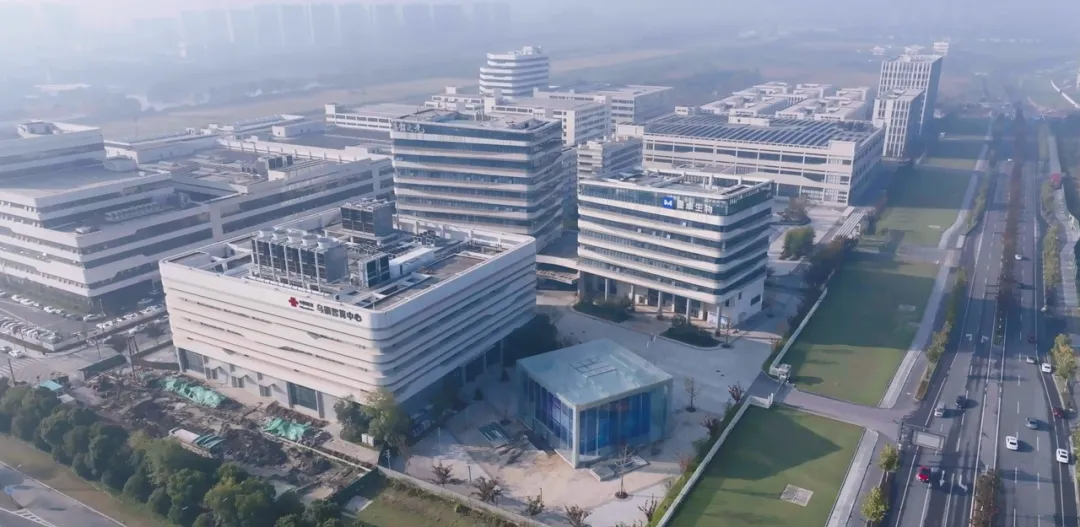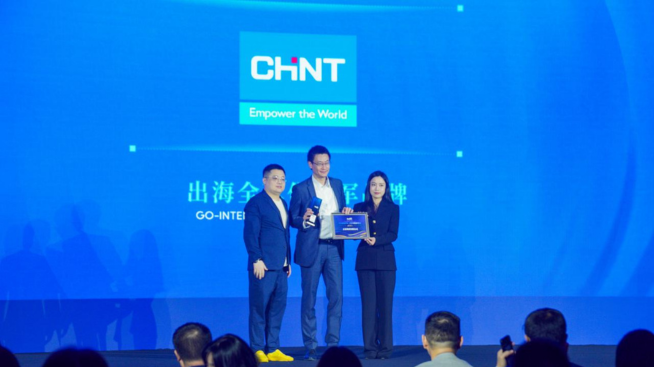On June 10th, a delegation of envoys from more than 30 countries including South Africa, Chile, Thailand, Venezuela, Azerbaijan, Nigeria, the United Arab Emirates, and Ukraine visited the CHINT Hangzhou Industrial Park.
The envoys admired the development of the integration of modern industry and smart energy. They took photos as they walked, and through CHINT’s window of entrepreneurship and innovation development, they saw a new picture of the prosperity and vigorous development of China’s private economy.
As the process of urbanization around the world continues to accelerate, urban governance issu has become increasingly complex and diverse. At the CHINT Innovation Experience Center, the envoys learned about the continuous advancement of Chinese cities from digital to intelligent and the industrial support behind the construction of smart cities.
Under the leadership of the “One Cloud and Two Networks” strategy, CHINT has built the Industrial Internet of Things and Energy Internet of Things, and built a “microcirculation system” featuring multi-energy complementarity, open sharing, two-way communication and intelligent regulation to help improve the efficiency of urban governance. All kinds of smart terminals, smart homes, smart buildings, smart water, smart heating, and smart rail transit systems will be broadcast in the continuous evolution of the “city lifeline” to support all aspects of smart city construction.
When asked by a reporter from ZJSTV if he is looking forward to cooperating with companies like CHINT, Chile’s ambassador, Luis Schmidt said, “Of course, both their technologies and concepts are very important for us. A big step has been taken by China in the integration of green development, and Zhejiang has set a better example.”
The envoys from Africa and the Middle East were very interested in CHINT’s solutions in the field of electric power and new energy. With the continuous advancement of the “carbon neutral” process in many countries around the world, the demand for photovoltaics in the Middle East and Africa is growing rapidly, providing photovoltaic companies with huge potential business opportunities.
Various geographic and economic factors such as extreme high temperature and temperature difference between day and night make photovoltaic market opportunities and challenges coexist in most countries in the Middle East and Africa.
In CHINT photovoltaic intelligent factory, the staff exhibited the real-time production data of Thai factory on the large screen. Thai ambassador Atayu Xisam highly appreciated CHINT’s practice of exporting advanced green production capacity to Thailand, and looked forward to CHINT’s further investment in Thailand. He hoped that the advanced mode of “industrial brain + future factory” explored by CHINT would further drive the development of intelligent manufacturing in Thailand.




